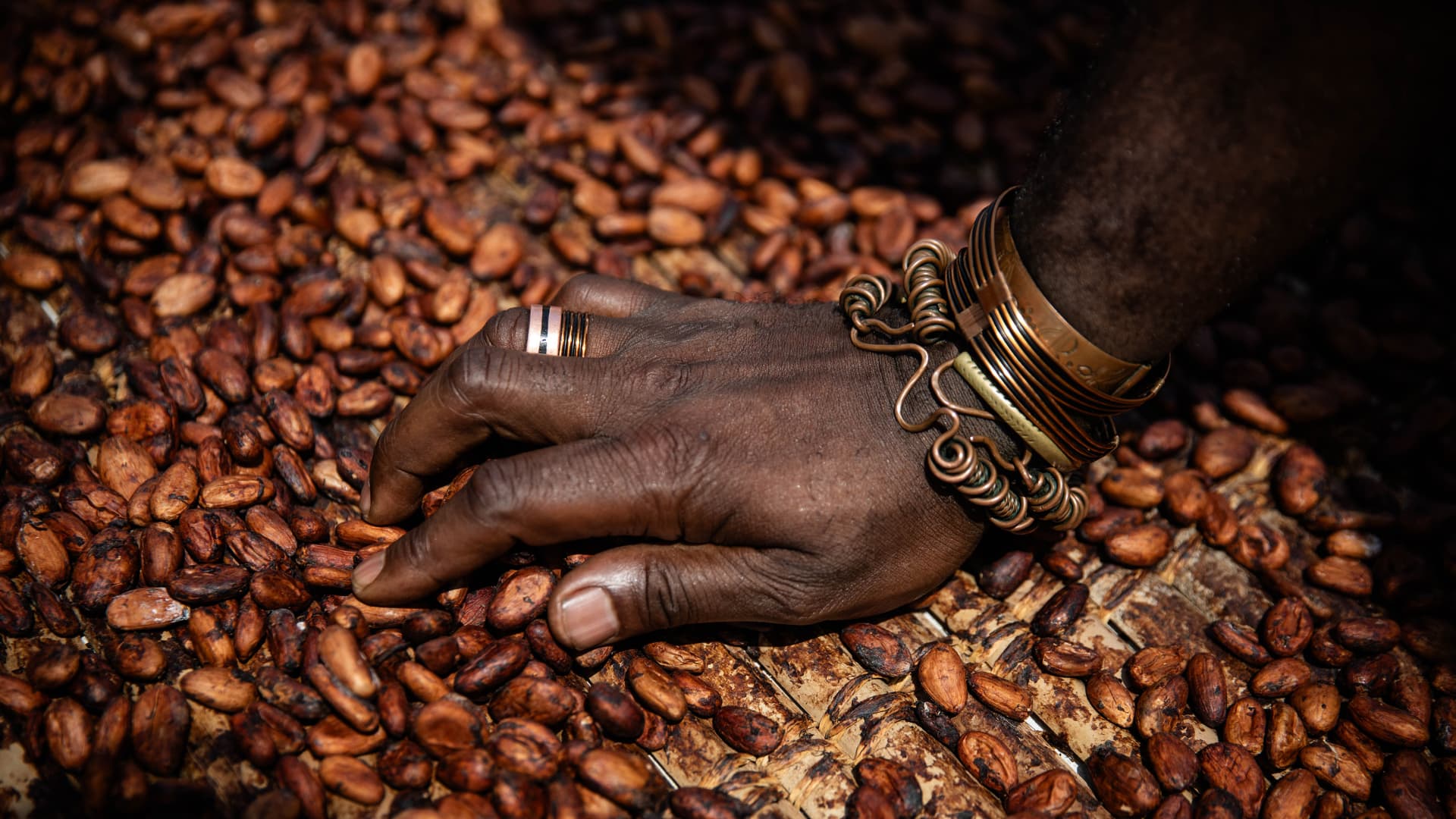
- Analysts believe the cost of the core ingredient to make chocolate may have room to extend its record-breaking run.
- Concerns over the supply of cocoa in West Africa, home to around three quarters of the world's production, have driven the market higher in recent months.
- Somewhat surprisingly, however, the historic price surge has not yet hampered global demand.
Analysts believe the cost of the core chocolate ingredient may have room to extend its record-breaking run, with no sign of significant demand destruction yet on the horizon.
Concerns over the supply of cocoa in West Africa, home to around three quarters of the world's production, have driven the market higher in recent months.
In New York, benchmark ICE cocoa futures stood at $6,549 per metric ton on Wednesday. The contract, which surpassed $6,000 for the first time last month, has climbed more than 57% year-to-date.
Get South Florida local news, weather forecasts and entertainment stories to your inbox. Sign up for NBC South Florida newsletters.
Somewhat surprisingly, the historic price surge has not yet hampered global demand.
"Typically, what you'd expect when you have any sort of agricultural commodity, you'd expect to see some demand destruction when you have these astronomically high prices — but we're not seeing it in cocoa," Paul Joules, commodities analyst at Rabobank, told CNBC's "Squawk Box Europe" on Wednesday.
"You could say that one of the reasons we've seen cocoa hold up fairly well in terms of demand is it is arguably a compulsive purchase for consumers, so we don't really see it have the same sort of demand dynamics as many other commodities," he added.
"Also, a lot of these processes, they would have contracts in advance. So, they are still processing, they still have factories that they have to use and operate, so it's not necessarily [the] case that we would see this immediately in the figures."

Rabobank's Joules said that he expected to see some demand destruction in the second half of the year, adding that the current supply and demand picture is "very, very tight."
Money Report
U.S. chocolatier Hershey, one of the world's biggest chocolate companies, issued a profit warning last month on soaring cocoa prices. The maker of Reese's Peanut Butter Cups said in a statement on Feb. 8 that cocoa prices were expected to limit earnings growth this year.
How much higher can cocoa prices go?
"The key question, and also the toughest, is how much higher cocoa prices can go," Warren Patterson, head of commodities strategy at ING, said in a research note published on Feb. 15.
"They need to go to levels where we start to see significant demand destruction. We are already seeing some of that already, but clearly not enough to bring the market back into balance and ease tightness concerns."
Patterson said West African cocoa supply remains the "big concern" among market participants. That's because the Ivory Coast is estimated to account for about 44% of global supply, while Ghana holds a share of roughly 14% of output, he noted.
"Last year, heavier-than-usual rainfall raised concerns over the impact it would have on the crop, with rising cases of black pod disease. Heavy rains also led to issues over cocoa being delivered to ports," Patterson said.
"This year, drier weather conditions and strong Harmattan winds are raising only further concerns over how the current crop evolves."
El Niño-related dryness in much of Southeast Asia, India, Australia and parts of Africa has fueled a price rally for soft commodities such as cocoa, sugar and coffee in recent months.
The El Niño phenomenon is a naturally occurring climate pattern that takes place when sea temperatures in the eastern Pacific rise 0.5 degrees Celsius above the long-term average. It can pave the way to more storms and droughts.






